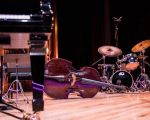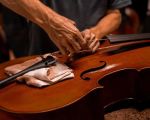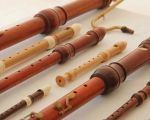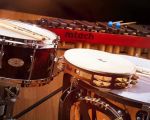What Does the Bible Say About Musical Instruments? Biblical Perspective on Music in Worship
Music and worship are deeply intertwined in many religious traditions, and the Bible is no exception. As someone who has spent years studying both scripture and music, I’ve often wondered: What does the Bible say about musical instruments? Can we incorporate them into worship today? This question is frequently debated among different Christian communities, and the answers can vary depending on interpretation.
Throughout scripture, music plays an important role in the worship of God. From the Book of Psalms to the New Testament, musical instruments are mentioned repeatedly. In this article, I’ll explore the Bible’s view on musical instruments, provide context from key scripture passages, and offer insight into how we can apply these teachings today in our worship practices.
1. Music in the Bible: A Spiritual Tradition
Music has always been part of the human experience, and the Bible affirms its importance in both worship and daily life. In the Old Testament, music is frequently used as a means of expressing praise, joy, and reverence for God. The Book of Psalms, for example, is filled with references to singing and playing instruments as an act of worship. Many of the Psalms were originally intended to be sung to musical accompaniment, and numerous instruments are mentioned throughout these sacred songs.
In Psalm 150, we find one of the most well-known scriptures about musical instruments:
"Praise him with the sounding of the trumpet, praise him with the harp and lyre, praise him with timbrel and dancing, praise him with the strings and pipe, praise him with the clash of cymbals, praise him with resounding cymbals. Let everything that has breath praise the Lord." (Psalm 150:3-6)
This passage clearly emphasizes the use of various musical instruments in worship, suggesting that music—accompanied by instruments—should be part of praising God. It’s a powerful call to celebrate God’s greatness with all forms of sound and rhythm.
2. Musical Instruments in the Old Testament
Many types of musical instruments are mentioned in the Old Testament, some of which were specifically designed for temple worship. Instruments like the trumpet, harp, lyre, cymbals, and timbrel (a type of tambourine) were used by the Israelites in their religious ceremonies and festivals. These instruments were not just decorative; they played a vital role in the rituals and acts of worship that connected God’s people with Him.
For example, in 1 Chronicles 15:16, King David commands that the Levites appoint musicians and play instruments as the Ark of the Covenant is brought into Jerusalem:
"David told the leaders of the Levites to appoint their fellow Levites as singers to sing joyful songs, accompanied by musical instruments: lyres, harps, and cymbals, to raise the sound of joy." (1 Chronicles 15:16)
Here, we see that music, accompanied by instruments, was essential in the procession of the Ark, symbolizing joy, reverence, and unity in worship. The use of instruments was considered a way to glorify God, making the act of worship more meaningful and heartfelt.
3. Musical Instruments in the New Testament
While the New Testament doesn’t mention musical instruments as explicitly as the Old Testament, music and singing are still important elements of worship. The Apostle Paul encourages believers to use music to express their faith, even without specific references to instruments. In Ephesians 5:19, Paul writes:
"Speak to one another with psalms, hymns, and songs from the Spirit. Sing and make music from your heart to the Lord." (Ephesians 5:19)
In this passage, Paul advocates for spiritual music—songs from the heart—as a form of worship. Although instruments are not directly mentioned, the act of singing is clearly significant, suggesting that music, in whatever form, is an integral part of worshiping God.
4. The Role of Instruments in Modern Worship
Given the strong scriptural support for the use of musical instruments in worship, it’s clear that they hold a significant place in Christian tradition. Today, many churches incorporate a variety of instruments into their services, from guitars and keyboards to drums and violins, enhancing the worship experience and drawing congregants closer to God through music.
However, there are some denominations that take a more conservative stance and choose to avoid instruments in worship, favoring a cappella singing as a means of worship. This approach is often based on interpretations of scripture that focus on the simplicity of worship or the early church’s practices. It’s important to remember that while the Bible encourages the use of music in worship, the choice of whether to include instruments is ultimately a matter of church tradition and personal belief.
5. The Spiritual Significance of Music and Instruments in Worship
Regardless of the style of worship, the Bible affirms that music—whether instrumental or vocal—has the power to connect us with God. Music allows us to express emotions, communicate praise, and experience a sense of community during worship. Instruments are a way of enhancing this expression, giving voice to the melodies of the heart and soul.
From my personal experience, I’ve found that music, especially when accompanied by instruments, creates an atmosphere that encourages reflection, joy, and a deep connection with God. Whether in a grand church or a small prayer gathering, music serves as a tool that unites believers and helps elevate the spirit of worship.
6. Embracing a Variety of Instruments in Worship
The beauty of music in worship is its versatility. Different instruments bring unique qualities to the worship experience. For instance, the piano provides a rich, melodic sound, while the drums create a rhythmic beat that drives the energy of the congregation. The guitar, with its warm and inviting tones, can evoke feelings of intimacy and reverence. Each instrument has the potential to communicate a different aspect of God’s glory and power, helping to convey the emotional depth of our worship.
It’s important to recognize that the Bible does not limit us to specific instruments. The diversity in the types of instruments used throughout scripture reflects the diversity of worship practices across cultures and times. As such, today’s worship services can incorporate a wide range of musical instruments, each contributing to the overall experience of glorifying God.
In conclusion, the Bible encourages the use of musical instruments as a way to enhance worship and praise. While some may prefer a cappella worship, the inclusion of instruments is deeply rooted in biblical tradition. Whether you’re a musician, a worship leader, or a believer, embracing music and instruments in worship can deepen your connection with God and enrich your spiritual life.








